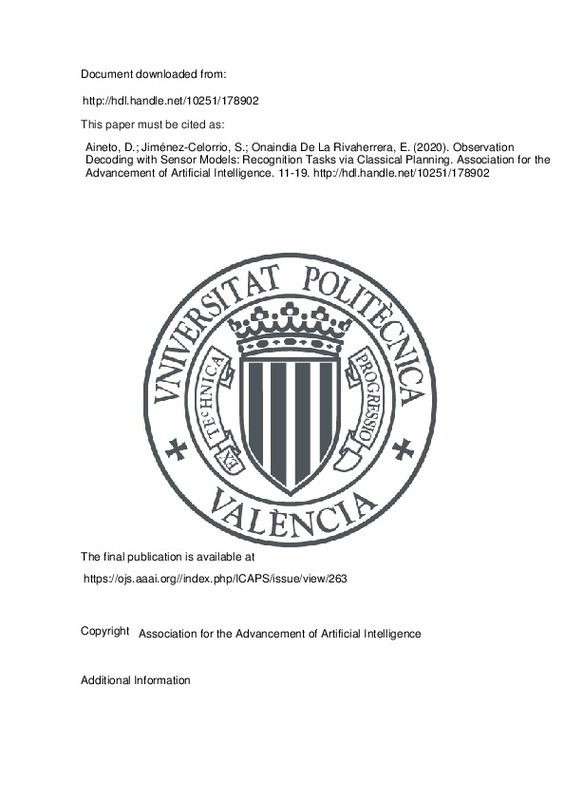JavaScript is disabled for your browser. Some features of this site may not work without it.
Buscar en RiuNet
Listar
Mi cuenta
Estadísticas
Ayuda RiuNet
Admin. UPV
Observation Decoding with Sensor Models: Recognition Tasks via Classical Planning
Mostrar el registro completo del ítem
Aineto, D.; Jiménez-Celorrio, S.; Onaindia De La Rivaherrera, E. (2020). Observation Decoding with Sensor Models: Recognition Tasks via Classical Planning. Association for the Advancement of Artificial Intelligence. 11-19. http://hdl.handle.net/10251/178902
Por favor, use este identificador para citar o enlazar este ítem: http://hdl.handle.net/10251/178902
Ficheros en el ítem
Metadatos del ítem
| Título: | Observation Decoding with Sensor Models: Recognition Tasks via Classical Planning | |
| Autor: | Aineto, Diego | |
| Entidad UPV: |
|
|
| Fecha difusión: |
|
|
| Resumen: |
[EN] Observation decoding aims at discovering the underlyingstate trajectory of an acting agent from a sequence of observa-tions. This task is at the core of various recognition activitiesthat exploit planning as resolution ...[+]
|
|
| Derechos de uso: | Reserva de todos los derechos | |
| ISBN: |
|
|
| Fuente: |
|
|
| Editorial: |
|
|
| Versión del editor: | https://ojs.aaai.org//index.php/ICAPS/issue/view/263 | |
| Título del congreso: |
|
|
| Lugar del congreso: |
|
|
| Fecha congreso: |
|
|
| Código del Proyecto: |
|
|
| Agradecimientos: |
|
|
| Tipo: |
|





![[Cerrado]](/themes/UPV/images/candado.png)


